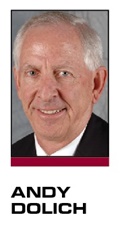The NFL continues to test the viability of the London market, scheduling two regular-season games at Wembley Stadium next season. In addition to playing the San Francisco 49ers in London next Oct. 27, the Jacksonville Jaguars also have committed to playing regular-season “home” games there from 2014 through 2016.
“Since we started playing regular-season games in London five years ago, we have heard very clearly from our U.K. fans that they want more football,” NFL Commissioner Roger Goodell said. “We are excited to play two games in London and take this next step in the growth of our game. We believe that more football will lead to more fans.”
The NFL says it has a British fan base of 11 million, 2 million of them defined as avid fans. According to the league, Sunday viewership of NFL games in England is up 154 percent, and the Super Bowl audience has increased 74 percent since 2006. Participation in amateur football in the U.K. has risen since the start of the International Series, growing by approximately 15 percent per year since 2007.
Clearly, the NFL is pushing to build its market in England. Some NFL team owners, led by the Patriots’ Robert Kraft, have been promoting the notion of a London franchise for the NFL.
Can the NFL’s growth overseas be compared to soccer’s growth in the U.S.?
Big sporting events will always draw capacity crowds in the U.S. and U.K. We have seen that in the sellout success of all the International Series NFL games since 2007. Likewise, FIFA’s World Cups, Olympics and major friendlies in the United States are always consistent fan magnets.
The NFL should look closely at how soccer in the U.S. has dealt with growth issues.
Major League Soccer is developing steady traction on many fronts, but it has taken close to 50 years for the sport to get to this point. Statistics show that 4 million youngsters between the ages of 6 and 19 play organized soccer in the U.S. Anecdotal evidence shows a visible increase of U.S. soccer-playing kids wearing jerseys of their favorite international sides. More and more sports bars are catering to international soccer viewers in our neighborhoods. NBC recently acquired the U.S. TV rights to the English Premier League, reportedly paying $80 million to $85 million a year.
Is the NFL’s push in England more relevant than soccer’s future growth in the United States? I don’t think so. To me this expansion is tied more to growing TV revenue than growing the sport of football throughout the United Kingdom.
It must be confusing in British pubs to listen in on debates about the merits of “Association” football versus “NFL” football.
Next time you are in England, take a visit to British schools and playgrounds and see how many football fields you can find with helmeted young Brits throwing and running around with a leather prolate spheroid. Drop into the local pub and ask the barkeep to change the channel from the Premier League game to the Raiders vs. Chiefs matchup and see what kind of reaction you get.
Of the four NFL teams scheduled to play at Wembley next season, only the 49ers have previously played a regular-season game there (the Vikings played a preseason game at Wembley in 1983).
If the NFL is committed to creating a grassroots movement in the U.K., it will take significant investments and patience in building facilities. It will mean creating long-term educational platforms in coaching, education and safety and teaching young people the hand-eye coordination to go along with the foot skills that soccer has taught them. It’s always a challenge to change a country’s sports DNA.
Just because a sport draws large, enthusiastic crowds doesn’t mean that it is about to catch on as a competitive ticket-selling, sponsorship-generating pro sport on foreign soil. The failure of NFL Europe in 2007 is a cautionary tale in thinking that the time is right for a full schedule of NFL regular-season games in London.
Andy Dolich (andy.dolich@gmail.com) has held executive positions at the San Francisco 49ers, Oakland A’s, Golden State Warriors, Memphis Grizzlies, Philadelphia 76ers and at the NASL’s Washington Diplomats during his 40-year career in sports.




